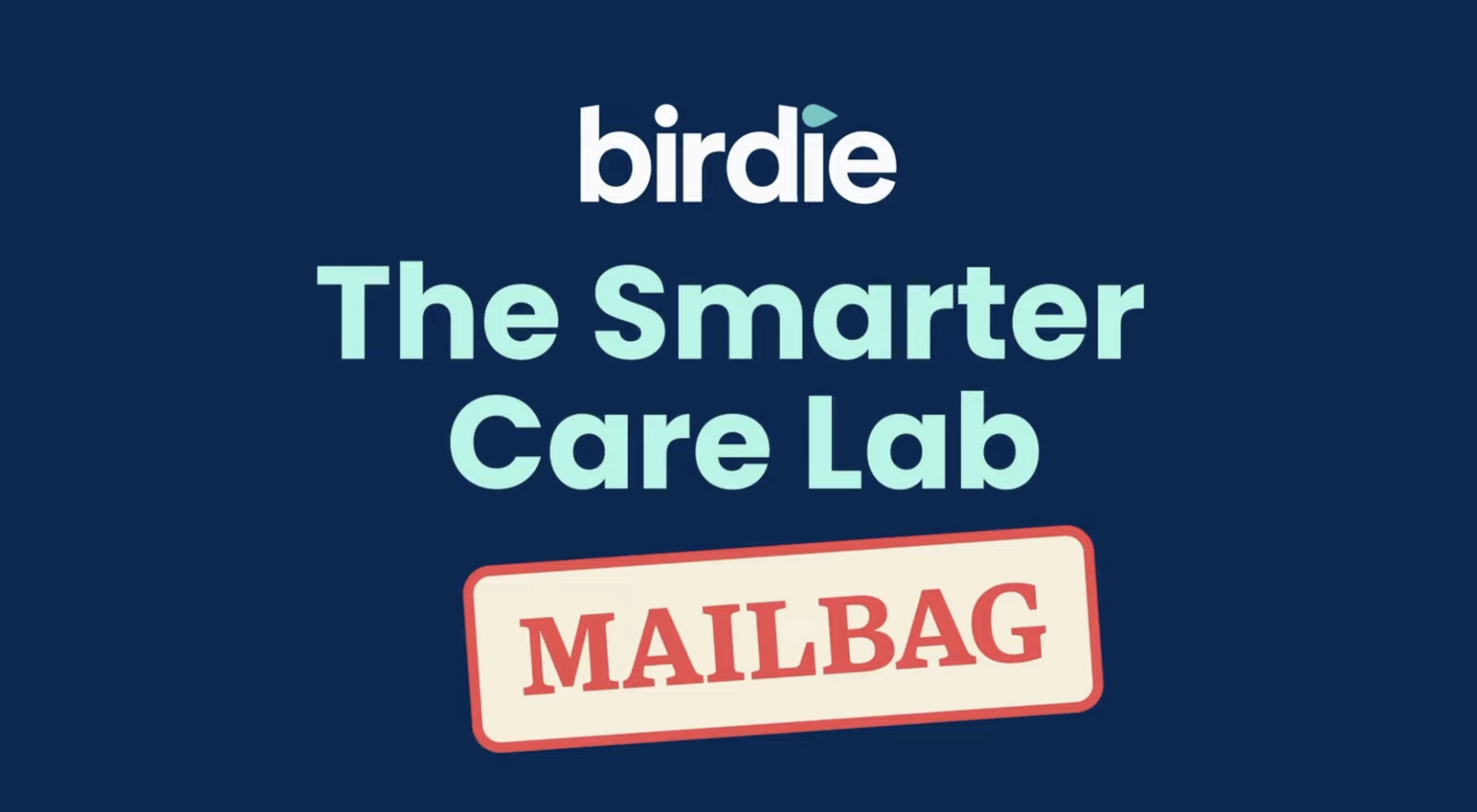Table of contents
As of April 2024, the CQC launched the single assessment framework across all health and social care providers. This framework has included a number of changes to the way the CQC perform inspections and provide a rating. Therefore the information below may contain some outdated information. For the latest information on what has changed and what you need to know, please head here.

The CQC guidelines can help you prepare for your inspection and meet the necessary requirements to achieve a good or outstanding rating. The guidelines are divided into five Key Lines of Enquiry, or KLOEs. In this article, we are going to focus on the CQC well-led KLOE, exploring exactly what the CQC expects and how to put this into practice in your home care agency.
What are the key elements of the CQC well-led KLOE?
The CQC well-led KLOE focuses on the leadership and management of your home care agency. It expects your senior team to lead by example and to offer the best support to staff at all levels. It is vital that you can provide the necessary CQC KLOE evidence to meet requirements, as the consequences of failing to meet the expectations of the well-led KLOE can put you in breach of the law.
But what does the CQC mean by ‘well-led?
The CQC says:
“By well-led, we mean that the leadership, management and governance of the organisation assures the delivery of high-quality and person-centred care, supports learning and innovation, and promotes an open and fair culture.”
So, what does this mean for your home care agency?
As an organisation, the CQC expects you to perform adequate risk assessments, to be looking for ways to continually develop, and to have a clear strategy to create a high standard of care for your clients.
The CQC well-led KLOE is divided into five sections. Let’s take a closer look at each section and how to achieve a ‘good’ or ‘outstanding’ rating in each.
The CQC asks:
“Is there a clear vision and credible strategy to deliver high-quality care and support, and promote a positive culture that is person-centred, open, inclusive and empowering, which achieves good outcomes for people?”
What does this mean for you?
In a nutshell, every member of your team should feel positive and proud to work in your agency. To support this, you need a well-trained management team that respects and values staff and promotes a culture of openness and transparency. Your home care agency should monitor the attitudes, values, and behaviour of staff and inspire them to provide a quality service.
Dealing with incidents
It is the nature of care provision that things inevitably do go wrong from time to time. The CQC recognises that mistakes can happen, but they want to see how you deal with incidents as they occur, including how honest you are with clients and their families. At every level, staff should be recognising and admitting mistakes, apologising, and rectifying where possible. The CQC will not accept covering up or minimising incidents, or any withholding of information from clients.
You must have a clear process of handling incidents that all staff understand. For every incident, record the relevant details, including:
- Type of incident
- Full names of the people who witnessed the incident
- Who is completing the log
- The date and location of the incident
- Any injuries or outcomes
- Actions taken and next steps
Near misses must also be recorded, so that lessons can be learned and steps are taken to prevent further risk.
You are also obliged to report some incidents to the CQC, particularly if they cause injury or harm to a person. You can read more here.
The CQC asks:
“Does the governance framework ensure that responsibilities are clear and that quality performance, risks and regulatory requirements are understood and managed?”
What does this mean for you?
Your governance framework is the way in which you ensure that all legal requirements are met. That can include CQC registration, public health considerations, like infection control, and other risk assessments. Every employee needs to understand the importance of these obligations. You can have all your paperwork in order, but if carers are not aware of regulations, or don’t understand their importance, they are unlikely to take the required measures during their visits.
Record-keeping that works
Keeping records that meet confidentiality requirements and are accessible to relevant staff, both during visits and in the office, is a long-standing challenge for home care agencies. Traditional paper records make it very difficult to monitor real-time care and provide a joined-up service with other professionals, such as GPs and district nurses.
We carefully designed our Birdie App to solve this very problem. It keeps all records in one place and provides the necessary CQC KLOE evidence for you to meet requirements.
The CQC asks:
“How are the people who use the service, the public and staff engaged and involved?”
What does this mean for you?
The CQC well-led KLOE expects you to consider the opinions of staff, clients, families, and other relevant people when developing your service. Show that you’re open to suggestions by providing regular opportunities for people to offer feedback, perhaps with an anonymous suggestions box that you review during a monthly meeting. You can also invite other professionals and your clients and their families to meetings to ensure that all voices are heard. A culture that has a clear whistleblowing policy reassures carers that they are safe to report concerns without recriminations.
The CQC asks:
“How does the service continuously learn, improve, innovate and ensure sustainability?”
What does this mean for you?
The CQC inspectors want to see that you have systems in place to keep track of performance and quality of care. They are particularly interested in the use of IT systems, like the Birdie app, to monitor and improve the care you give to clients. Their new strategy and focus on Digital Records Systems highlights their push for digitalisation in the sector.
To achieve a good or outstanding rating in the CQC well-led KLOE, you must also demonstrate how you learn from incidents and improve your service as a result.
The CQC asks:
“How does the service work in partnership with other agencies?”
What does this mean for you?
As a home care agency, you often work alongside other organisations, including the local authority, safeguarding teams, and healthcare providers. The CQC well-led KLOE expects you to have an open and honest relationship with all these parties, sharing information where relevant and cooperating at all times.
Birdie recently launched a new exciting partnership with Fosse Healthcare to demonstrate how home care can improve outcomes and reduce care costs for the NHS. Birdie is working with Nottinghamshire City Council, Nottingham and Nottinghamshire CCG, and Fosse Healthcare to develop tools that allow care workers to track and report early warning signs of health risks. You can find out more here. This is currently a pilot, but if successful it will open further opportunities for every partner agency to have seamless communication with NHS organisations.

Barriers to achieving a good or outstanding rating in the CQC well-led KLOE
- Managers are out of touch with what’s happening in the service.
- Leadership is inconsistent, over-bearing, ineffective, or there is evidence of bullying.
- Incidents are covered up, or the reporting of incidents is discouraged.
- Whistleblowers are unsupported or suffer recriminations.
- Safeguarding concerns are not dealt with appropriately.
- The leadership team does not support its staff or recognise the equality and diversity needs of employees.
- There is a lack of reflective practice, learning, and improvement.
At Birdie, we understand that consistently meeting governance requirements can be a challenge for home care agencies. The CQC well-led KLOE framework can help you stay abreast of what you need to do to achieve a good or outstanding rating.
Birdie’s tools are closely aligned with the CQC inspection frameworks and can help you meet legal requirements for the CQC well-led KLOE. Our system allows you to keep CQC KLOE evidence in one place, so you’re prepared for your inspection. Find out more.
Have you got an upcoming CQC Inspection? Check out our resources:


Published date:
May 23, 2021
Author:
Emma-Lee Curtis

.png)















.svg)